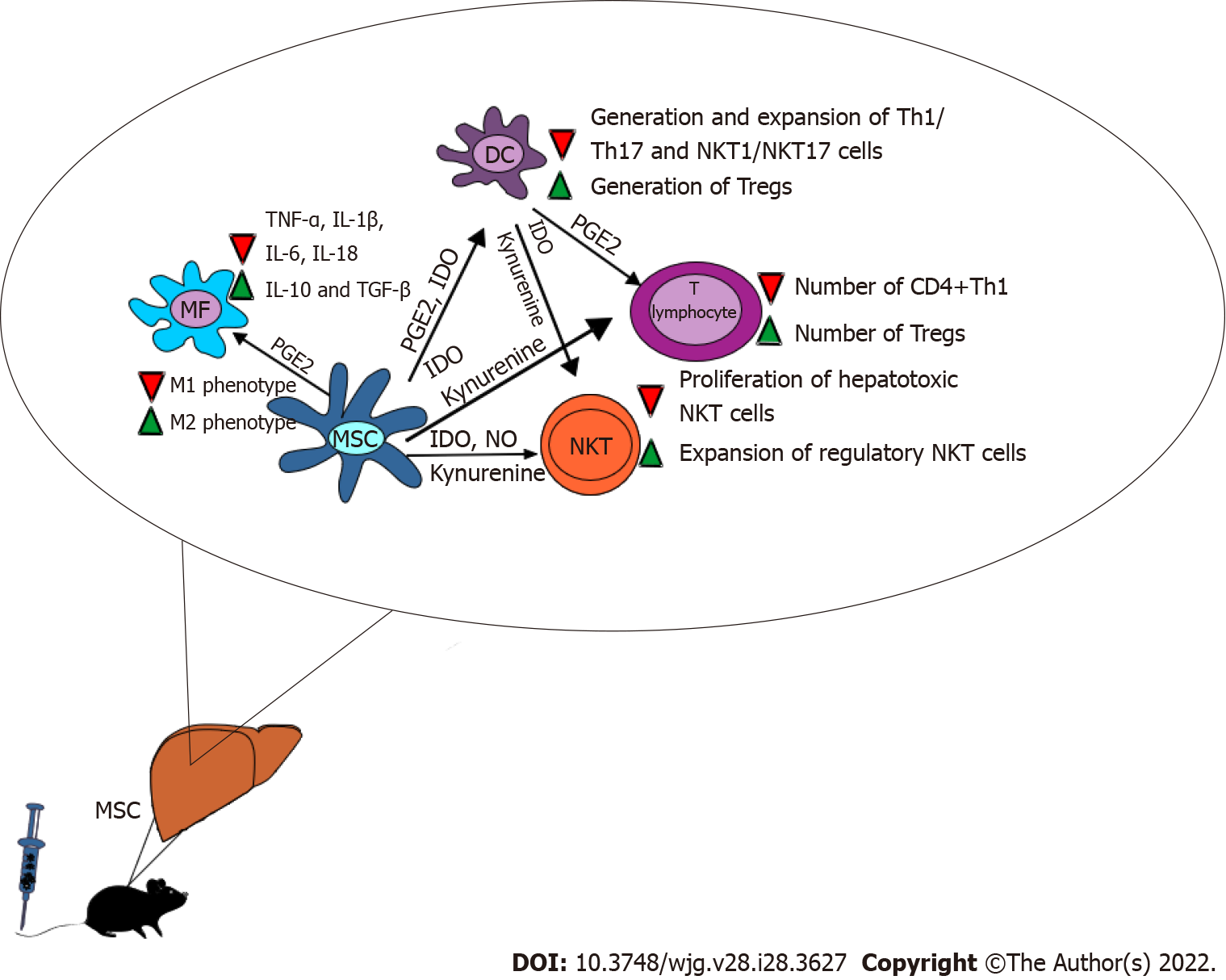Copyright
©The Author(s) 2022.
World J Gastroenterol. Jul 28, 2022; 28(28): 3627-3636
Published online Jul 28, 2022. doi: 10.3748/wjg.v28.i28.3627
Published online Jul 28, 2022. doi: 10.3748/wjg.v28.i28.3627
Figure 1 Mesenchymal stem cells-based modulation of immune cells in acute liver injury.
Mesenchymal stem cells (MSCs), in prostaglandin E2 (PGE2) dependent manner, prevent generation of inflammatory (M1) phenotype and induce generation of immunosuppressive (M2) phenotype in liver macrophages by down-regulating synthesis of inflammatory cytokines [tumor necrosis factor alpha, interleukin (IL)-1β, IL-6, IL-18] and by promoting production of anti-inflammatory cytokines (IL-10 and transforming growth factor beta). Increased indoleamine 2, 3 dyoxigenase (IDO) activity and enhanced secretion of PGE2 are mainly responsible for MSC-based generation of tolerogenic dendritic cells (DCs) which suppress expansion of Th1/Th17 lymphocytes and natural killer T (NKT) 1/NKT17 cells, but favor proliferation of immunosuppressive T regulatory cells (Tregs). MSC-generated tolerogenic DCs, in PGE2-dependent manner, suppress expansion of inflammatory CD4+ Th1 cells and induce expansion of Tregs, while in IDO/Kynurenine-dependent manner attenuate proliferation of hepatotoxic NKT cells and induce expansion of NKT regulatory cells (NKTregs). MSC-sourced nitric oxide, in autocrine manner, induces enhanced IDO activity in MSCs. MSC-derived IDO and Kynurenine suppress proliferation of inflammatory Th1 and NKT cells in the liver and were mainly responsible for MSC-dependent expansion of immunosuppressive Tregs and NKTregs in injured livers. MSCs: Mesenchymal stem cells; PGE2: Prostaglandin E2; TNF-α: Tumor necrosis factor alpha; IL: Interleukin; TGF-β: Transforming growth factor beta; IDO: Indoleamine 2, 3 dioxygenase; NKT: Natural killer T cells; Tregs: T regulatory cells; NKTregs: Natural killer T regulatory cells; NO: Nitric oxide.
- Citation: Harrell CR, Pavlovic D, Djonov V, Volarevic V. Therapeutic potential of mesenchymal stem cells in the treatment of acute liver failure. World J Gastroenterol 2022; 28(28): 3627-3636
- URL: https://www.wjgnet.com/1007-9327/full/v28/i28/3627.htm
- DOI: https://dx.doi.org/10.3748/wjg.v28.i28.3627









